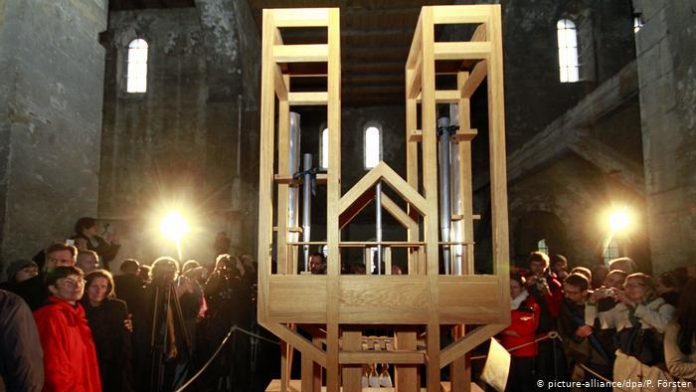A performance of John Cage’s ORGAN/ASLSP at a German church just changed chords — for the first time in almost seven years. The organ will continue to play the piece for as long as the instrument survives.
A new sound was heard in a medieval church in the German town of Halberstadt on Saturday.
An organ, which has been playing a piece by late avant-garde composer John Cage, changed chords for the first time in nearly seven years.
“The sound from October 5, 2013, until today, September 5, Cage’s 108th birthday, is the longest uninterrupted sound,” said Rainer Neugebauer of the John Cage Organ Project in Halberstadt.
The composition, “ORGAN/ASLSP” or “As Slow As Possible,” began playing in the St. Burchardi Church on September 5, 2001, what would have been Cage’s 89th birthday. He died in New York in 1992.
The composition was designed to last for 639 years, or until 2640.
Previous chord changes have brought thousands of people to the small town located about 170 kilometers (106 miles) southwest of the German capital, Berlin. But the coronavirus pandemic kept large crowds at bay on Saturday.
Instrument boosted by sandbags
Organs can continue playing notes for as long as a note is held, as the instrument sends air through the pipes to make music. Sandbags were placed on the organ on Saturday to keep the new notes playing until the next note change, which is expected to take place on February 5, 2022.
Should it stand the test of time, the specially-built organ will continue playing until 2640.
Different strokes, different folks
Cage, who was born in Los Angeles in 1912, was well known for his experimental music, including the song “4’33”,” a three-movement composition where musicians do not play any notes for four minutes and 33 seconds.
He has also been credited with inventing the “prepared piano” where he placed items, including coins and bolts, inside a piano to create different sounds.





























